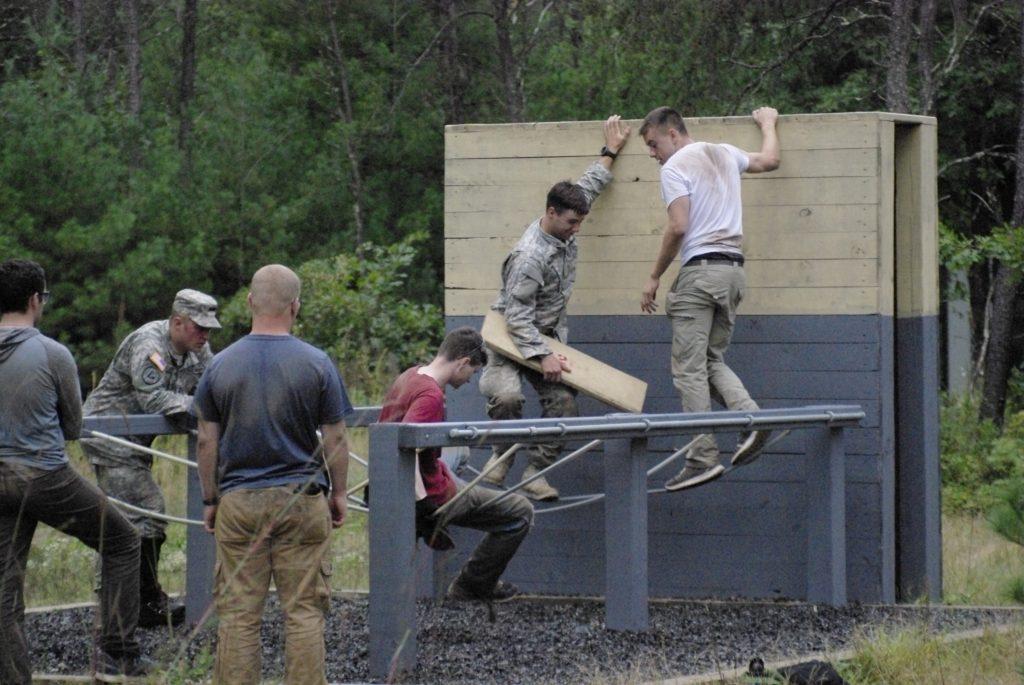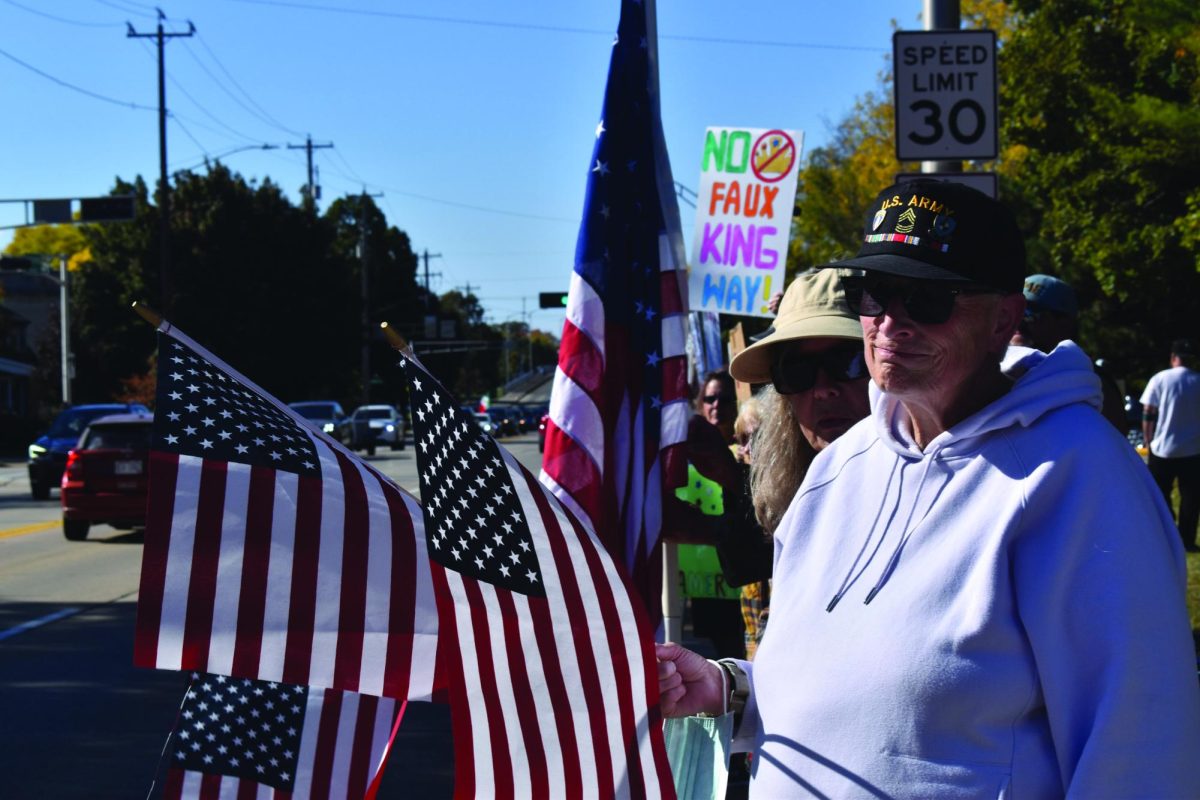
The Reserve Officer Training Corps have helped Army-oriented students at Oshkosh since 1968. The UW Oshkosh ROTC program differs from the programs at other schools because it focuses on the Army.
“Every branch of service has an ROTC,” Lt. Col. Keven Beattie said. “Here in Oshkosh, only Army is represented.”
The program is designed to train cadets to become officers in the U.S. Army.
Cadet Isaac Geffers said freshmen begin at the MS1 level where they learn basic skills for soldiers. MS2s learn leadership skills their sophomore year and juniors in the MS3 year get assessed on their accompany leadership. Seniors, or MS4s, spend their final year at the battalion level where they do a lot of planning.
At Oshkosh, all students in ROTC have physical training on Mondays, Wednesdays and Fridays; and strength training on Tuesdays and Thursdays at the Student Recreation and Wellness Center. The students that are contracted to be officers once they graduate have PT every day of the week.
Although PT varies, it is an indication of how students are doing physically, Geffers said.
“We do buddy carries, where we have to carry another individual for a certain distance,” Geffers said. “We do a lot of long runs, they can be 3 to 6 miles; and ruck marches, where you basically walk or run for 10 miles with 30 pounds on your back.”
According to Geffers, ROTC tries to keep PT as combat-focused as possible and it conducts several major training events.
“We have two FTX’s, or Field Train Exercises, that we do every year,” Geffers said.
At this semester’s FTX, students did day and night land navigation, rappelling and confidence courses.
Geffers said the spring FTX is designed for the MS3s to practice small unit leadership on running missions like ambushes and raids.
Cadet Kevin Wernet said the program also participates in campus events.
“The general cadet is more involved than the average student at Oshkosh,” Wernet said.
According to Geffers, the program supports events such as Run with the Cops and Take Back the Night every year, which is what he loves about ROTC.
“Every event we do, even support for other things, is kind of nice because we all go together,” Geffers said. “We’re all one big student organization.”
Geffers said although there are people in charge of the program as a whole, a lot of leadership falls on the junior and senior students.
According to Geffers, ROTC emphasizes that academics come before the program, but students take priority in both their classes and ROTC.
Beattie said the ROTC program is very adaptable to student schedules.
“We understand their primary job is to earn their degree,” Beattie said. “As long as the student informs us of conflicts with their schedule we will make sure to work with them.”
According to Wernet, students interested in becoming involved with ROTC should know that anybody can join the program.
“Anybody on campus can join ROTC their freshman and sophomore year and not have to serve in the military,” Wernet said. “I would strongly advise that as many people as possible do this because it teaches you discipline, but it also gives you basic leadership skills.”
According to Beattie, joining ROTC does not require students to pass any tests initially.
“For your first two years there are no certain qualifications,” Beattie said. “To move into the advanced course, junior and senior year, you must meet minimum physical and academic requirements.”
Geffers said when it comes to selections, ROTC looks for people who are physically fit and show leadership capabilities.
“Anybody can participate in ROTC and come to PT every day, but it takes that next step of actually taking an initiative and being a leader,” Geffers said. “That’s how you gain your contract. Once you gain your contract then you’re set to become an officer.”
Beattie said he has worked long and hard to get to his current position.
“I am going on my second year as the Professor of Military Science for the Fox Valley ROTC detachment,” Beattie said. “However, I did commission as a second lieutenant from ROTC at UW-La Crosse 18 years ago.”
Beattie said working with enthusiastic cadets is his favorite part about being involved in ROTC.
“Their energy makes me want to be a better officer and do everything I can to make them the best second lieutenants,” Beattie said.
According to Beattie, the ROTC program helps Oshkosh students in a variety of ways.
“We educate and train students to be leaders of character,” Beattie said. “That additional education and experience is what separates cadets from their peers on campus.”
Wernet said ROTC pushes participants beyond what they think they can do.
“You have to have some form of leadership, and ROTC gives you the stepping stool for that,” Wernet said. “You develop leadership skills, you learn how to interact with people, you learn to manage time better and you also gain a better awareness, understanding and appreciation for the military overall.”
Geffers said ROTC has prepared him for life after college.
“I’ve definitely stepped up as I’ve gone through ROTC and it’s pushed me,” Geffers said. “I know when I get out and come to the work world, I’m going to be able to use those attributes.”












